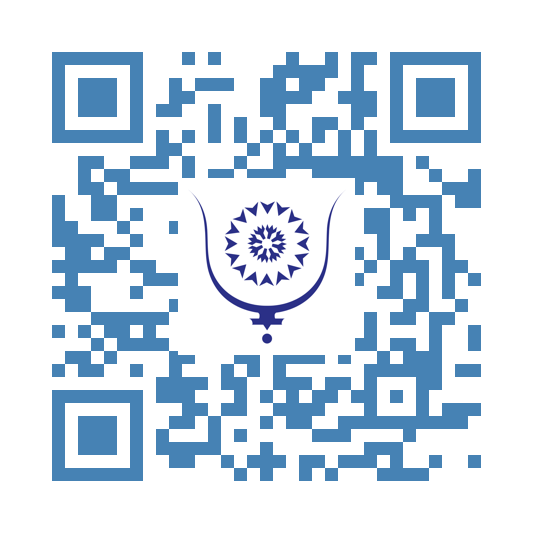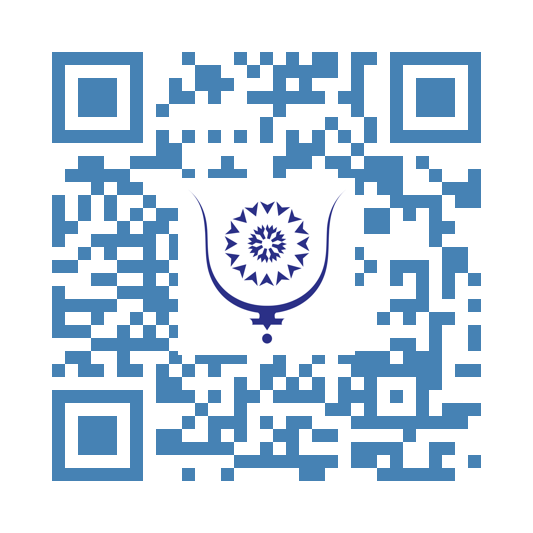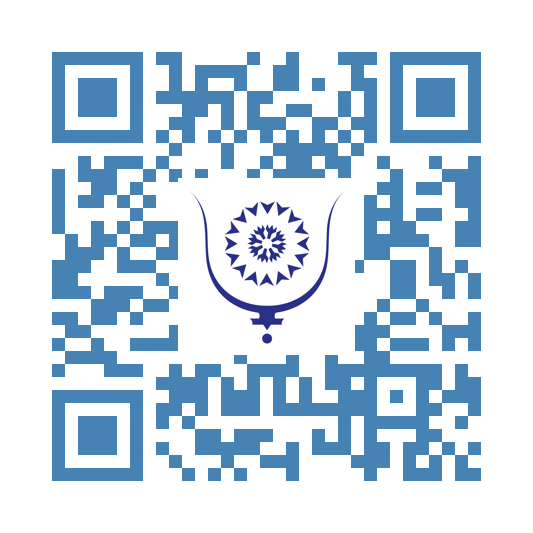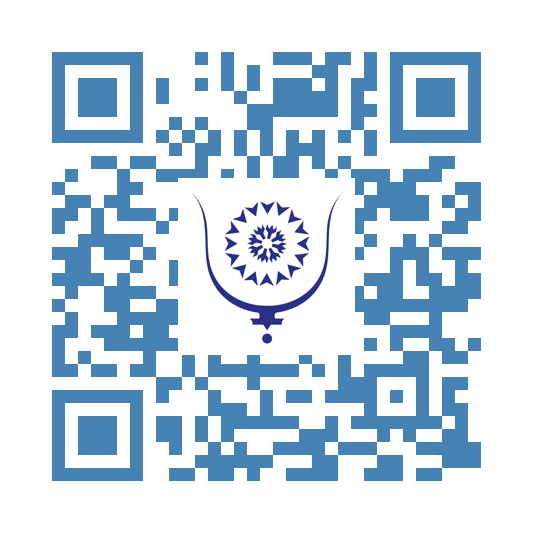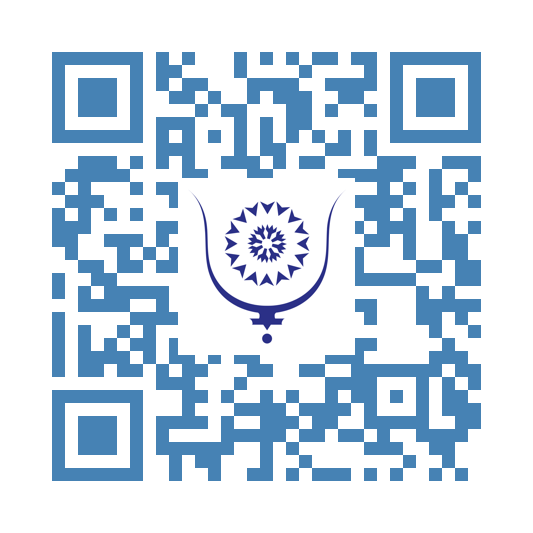Quimbanda
335
Quimbanda is a living, urban spirit-religion that took shape in Brazil’s port cities over the late nineteenth and twentieth centuries, drawing on Central-West African Bantu cosmologies, Indigenous American practices, popular Catholicism, and Kardecist spiritism. Where Umbanda is often described as the “right hand” (linha da direita) that emphasizes healing and moral elevation, Quimbanda is commonly called the “left hand” (linha da esquerda): it faces the gritty realities of desire, conflict, work, sex, money, and protection in the world as it is. Its spirits—above all Exus and Pomba Giras—are not devils in the Christian sense but powerful agents of the crossroads who negotiate paths, open and close roads, and mirror human passion with startling clarity.
Historically, Quimbanda emerged alongside rapid migration, police repression, and racialized poverty. In this setting, its spirits became specialists in boundary spaces: thresholds, bars, markets, street corners, cemeteries—places where rules bend and deals are made. A gira (ceremonial circle) is noisy and social: drums mark the cadence, songs call the lines of spirits, smoke and perfume signal shifts in presence, and mediums incorporate to dance, speak, and counsel. Offerings are direct and sensorial—cachaça (distilled fresh sugarcane spirit), cigarettes, red wine, roses, roasted corn, spicy foods—because Quimbanda is about exchange: you give, you ask, you fulfill what you promised.
Exu in Quimbanda is not the trickster-devil of missionary caricature, nor merely the messenger of Candomblé. He is a class of spirits with names, histories, and personalities—Exu Tranca-Ruas, Exu Sete Encruzilhadas, Exu Caveira—who work at specific “crossroads” (cruzamentos, encruzilhadas). Pomba Gira, often misunderstood through misogynistic stereotypes, is the sovereign of female desire, elegance, and cunning—Maria Padilha, Sete Saias, Cigana—teaching about autonomy, charisma, and the dangers and power of seduction. Together they deal with what is hard to sanctify in polite spaces: jealousy, breakups, court cases, job blocks, spiritual attacks, and the tangled ethics of obligation.
Quimbanda’s ethic is pragmatic and accountable rather than abstractly moralistic. The spirits are not fooled by pompous speeches; they expect clarity, reciprocity, and follow-through. If a petition succeeds, you pay your offering. If you promised a mass for a soul, you schedule it. If you sought a binding or a separation, you accept the web of consequences that comes with bending social ties. Because of this directness—and because outsiders often conflate “left-hand” with “evil”—Quimbanda has long been stigmatized. In Brazil, racist and classist stereotypes have linked it to criminality and evangelical demonization has fueled persecution. Practitioners preach that Quimbanda is a sophisticated technology of negotiation with the spirit world, grounded in community, memory, and results.
Lineages vary. Some houses are fiercely traditional, keeping a tight separation from Umbanda and Candomblé; others are “mixed,” with mediums who serve lines across religions. Some houses work almost entirely with Exu and Pomba Gira; others include male and female “people” of the cemetery, the sea, the forest, or the gypsy caravan—reflecting broader Brazilian spirit vocabularies. There are also differences in cosmology: a few lineages place Exu within a Bantu-inspired schema of forces (kalunga, the line between worlds; nkisi-like principles); others frame him more through Catholic and Spiritist lenses, emphasizing masses for souls, prayers, and moral counsel.
What unites these forms is a shared grammar: crossroads as cosmological hub, offerings as contracts, incorporation as communication, and the conviction that spiritual power answers the problems of daily life. The sacred here is not faraway transcendence; it is the friction and flow of human bonds.
In recent decades, global interest has created exported and hybrid forms of “Kimbanda/Quimbanda,” sometimes trimmed to a grimoire system for private ritual. Practitioners in Brazil often welcome exchange but worry about decontextualization—losing the songs, the humor, the streetwise etiquette that make the spirits feel at home. Many houses respond with public education: teaching that Exu is not the devil, that offerings belong in appropriate places and times, that consent and responsibility matter, and that tradition adapts without abandoning its roots.
To meet Quimbanda is to meet a mirror. It does not promise virtue; it promises clarity about what you want and what it will cost. Its spirits love laughter and flamboyance, but they are exacting accountants of exchange. If Umbanda teaches the balm of light, Quimbanda teaches the courage to walk at night: to stand at the crossing, name your need, make your pact, and carry your word. If you do, the road opens—not because the world became pure, but because you learned how to move through it.
Share:
Quimbanda
copy:
https://bluwr.com/p/440604916
Morocco, this quiet conviction that still needs to be shared...
594
The saying "One who believes in himself has no need to convince others" is commonly translated into French as "Celui qui croit en lui-même n’a pas besoin de convaincre les autres". It evokes a quiet confidence, inner strength, and the stability of one who moves forward without ostentatious display. This idea finds a particular resonance in present-day Moroccan reality: a country confident in the course it has set, proud of its multiple and diverse advances, convinced of its diplomatic legitimacy, strong in its alliances and international roots. However, it faces a major internal challenge: persuading its own youth, even a large part of its population, of the meaning and scope of its progress and achievements. Winning the trust of the youth, and thereby enabling them to gain confidence in themselves and a shared, radiant, and prosperous future, is a true work in progress.
Moroccan diplomacy, an example of affirmed confidence, demonstrates an unashamed resolution facing any trial. It is characterized by unwavering determination, both decisive and pragmatic. Internationally, Morocco displays recognized strategic serenity. Under the Royal impulse, its diplomacy based on dialogue and continuity stands as a model of balance between cooperation, firmness, and self-confidence.
At the UN, for example, Morocco’s proposal of autonomy in the Sahara issue has become a normative reference, accepted by nearly all international partners. This diplomatic success perfectly illustrates the saying. Confident in its correctness, Morocco did not need to resort to excessive demonstrations to impose its position. Pragmatism, patience, endurance, and determination are the watchwords on this matter. Today, Minister Bourita and Omar Hilal, the Kingdom’s ambassador to the UN, are even seen as stars and are sought after as such at every public appearance, so convincing and credible are they. But is it the same in all fields and sectors?
Beyond the Moroccan Sahara issue, the Kingdom is deploying active economic and parliamentary diplomacy, weaving a solid network of alliances in Africa, Europe, the Middle East, and progressively in Latin America and Asia. This partnership-based strategy illustrates this "conviction tranquille" which seeks less to convince than to consolidate achievements. Renewed agreements with the European Union or strengthened cooperation with China, India, Brazil, African countries, and others demonstrate the solidity of this approach.
Yet beyond that, Morocco endures a striking paradox. Its most urgent internal challenge is to regain, perhaps even build, the trust of its youth. Confidence in themselves first and foremost, but also confidence in the country.
This confidence shown outwardly and perceived positively internally contrasts with the impatience and skepticism of some Moroccan youth towards other aspects of life. Faced with socio-economic challenges such as unemployment, insecurity, and the perceived slowness of reforms, many young people express deep doubt about their future. Alongside the endemic weakness in communication, the poverty of arguments, the apathy of official media, and the excesses of many others, young people often also endure nihilistic discourse spread by some media voices or social networks, which undermines their confidence and fuels disengagement and fatalism.
This paradox of a state confident on the world stage but constantly needing to convince internally lies at the heart of the situation. Despite government efforts to improve employment and public services, recurring individual or collective protests reflect this malaise—a deficit in civic and chronic confidence.
How can Morocco then revive common faith and evolve this paradigm?
It seems essential to invest in authentic dialogue with youth so that they fully feel the scope and benefits of the progress made. Initiatives such as renewed civic education programs, support for youth entrepreneurship—especially in rural areas—thorough revision of the school curriculum, and increased youth participation in decision-making bodies are some examples underway or to be developed. The easing of certain regulations regarding taxation, currency exchange, e-commerce, business operations, and digital currencies would surely open up new horizons for this connected youth, eager for success. This would certainly increase this much sought-after confidence capital, crucial today. Why not immediately take the measures that will inevitably be taken in ten years? Then it will be too late. Moroccan youth want to undertake and live at the pace of the world.
The saying "Celui qui croit en lui-même n’a pas besoin de convaincre les autres" would thus become a call to reinvent the bond between the State and its youth: create a collective energy of confidence, not only manifested outwardly but also lived and felt inwardly, to build a shared future.
This seems to have started today. Recent decisions by the Council of Ministers to encourage youth to join institutions, through the revision of the organic law of the House of Representatives, bear witness to this. Lowering the youth age cap from 40 to 35 is a major advance. The possibility for young people to run in elections without party affiliation, as well as the promised financial support for non-partisan youth, are strong incentives against the lethargy that had long taken hold in Moroccan political life. The matter is settled: either political parties open up to youth, or they will be condemned to occupy only backbencher seats. If young people get involved, they will participate in the change they dream of and impose it. Their level of confidence will only increase.
Now, let us wait for the parliamentary debates that will finalize all this. This is an important criterion: for once, we will have a law adopted about nine months ahead of elections. Provided no one throws a wrench in the works.
Only then will confidence be built, like a transparent, inclusive, participatory, and lasting foundation.
One clarification though, the phrase "One who believes in himself has no need to convince others" is generally attributed to Lao Tzu (or Laozi), the Chinese sage and founder of Taoism. However, it is not authenticated as an excerpt from the Tao Te Ching. No matter, the saying takes on its full meaning here anyway.
Share:
Morocco, this quiet conviction that still needs to be shared...
copy:
https://bluwr.com/p/437001605
Lazy Developers are the #1 Security issue
879
Open-source used to be the best you could do security wise. Someone, or a small team would start a project about a true unmet need, open-source it on the internet, a community would grow around it. That community would be thousands of people strong, working tirelessly 24/7 to make the project better, while the original team would usually serve as "benevolent dictators".
This means that every line of code is in the open and audited by several dedicated programmers before it is officially released. This is an extraordinary efficient model for development and security, that made open-source software the foundation of the internet and much more. This model gave us Apache, GNU/Linux, Git, ffmpeg, pyTorch, MySQL, ... just to name a few. Without it, there is no modern computer science, there is no modern internet, no modern operating systems, no modern AI.
Of course, it is not a bullet proof system, bad actors still try to exploit bugs and integrate backdoors into open-source software. However, these are identified by the community and promptly corrected at a pace that proprietary software can never match. Hardened security through radical openness. This system worked because it is maintained by passionate people with very high technical knowledge and abilities. These projects are all coded in low-level programming languages (means harder), not high-level scripting languages.
Fast-forward to today, a world dominated by nodesjs and scripting languages in general. Scripting languages like Python and Javascript have allowed many more people to integrate the folds of the "Developers". These languages are orders of magnitude easier to learn, do not require compilation, and due to many technological advancements, are now fast enough to be used in serious applications.
However their massive adoption also had the unintended consequence of lowering security standards in open-source and therefore everywhere. Nodesjs is now for many the preferred way of building "full-stack" applications. One single language for both the backend and the frontend is a very enticing premise. However Javascript, was never meant to be a secure language and more importantly the scripting language came with a lazyness culture. Gone are the days where programmers would fight off to show their skills and understanding of the machine, to see would come up with the most efficient, the most elegant and the most secure code. Now there is often expediency and lack of skill disguised as "efficiency". Why reinvent the wheel, when you can just import a free package (under MIT license) made by someone you don't know. That seemingly wise advise has now created a security nightmare of package dependencies that are impossible to audit.
There are now millions of open-source nodesjs packages. Most of these packages, are not, or very poorly maintained, they don't have sizeable communities supporting them. For most of them their makers have either moved on, or don't have the technical abilities to assess wether some piece of code could produce an exploit that some bad actors could use. These millions of packages all prime targets for bad actors looking for ways to insert backdoors into software used by millions. If an application requires 600MB of dependencies, it is not secure. That number should make any security aware person shudder.
Of course you can sandbox applications, but that is not enough.
Write your own code. Use as little dependencies as you can.
Share:
Lazy Developers are the #1 Security issue
copy:
https://bluwr.com/p/433446346
The Emerging Political Maturity of Moroccan Youth: A Legacy of GENZ212
891
The waning of the GENZ212 movement does not signal the end of a generation searching for meaning. It should mark the beginning of the political maturity of a youth until now seen as sidelined or completely uninterested. Between legitimate frustrations, institutional responses, and obvious possibilities of manipulation of which it may be unaware, Moroccan youth is entering a decisive turning point: moving from protest to construction.
Recent decisions by the Council of Ministers to include youth more substantially in political life explain well a fading movement and a generation now questioning itself. The ball is clearly in their court now. They know Morocco will not be made without them and is being made for them.
Born in the digital sphere, GENZ212 ignited social networks and mobilized a youth eager for change. Its energy, initially spontaneous, naive, and sincere, now clashes with reality: lack of a clear, common vision, unclear leadership, and attempts at takeover by opportunistic extremes who saw a golden opportunity and believed it could not be missed.
The momentum quickly weakened, as in any protest based on hollow slogans without clear contours or precise content, but the question remains: what remains of this anger?
The country responded quickly and seriously. The institutional response manifested rapidly. The calm and firmness of the royal speech at the opening of the current Parliament's last legislative session and the 2026 finance bill a few days later redefined priorities around health, education, and social cohesion. Record highs were set for education and health. By integrating youth expectations into public action, the crisis was defused. Morocco, as always, chose listening and reform over confrontation. The trap of manipulation thus quickly closed around these promoters...
In other arenas, some tried to rekindle the flame. The call to boycott the Africa Cup of Nations, for example, illustrates this: presented as a protest gesture, it quickly revealed ambiguities and also some frustration over extremists’ failure. The majority of citizens quickly condemned the boycott promoters, ridiculing them. Many observers concluded it was a political or even geopolitical takeover attempt. The overzealousness of Algerian media in trying to heat up the scene confirms and justifies this suspicion. Some even claim the recent protests are no longer a heartfelt cry but an echo of external agendas. As a result, several young former supporters distanced themselves from the movement. "We wanted change, not to become a tool in invisible hands," say early activists on social media.
Recent innovations encouraging youth to take the political step toward institutions, combined with the historic importance of budgets allocated to health and those planned for education, have shifted the mindset of most young people from protest to building.
As always, rooted in history, faced with drift, the Moroccan state has always favored stability and dialogue. This pragmatic approach continues a deeply rooted tradition: responding to unrest with concrete policies, not empty speeches or sugary promises. Throughout its modern history, the Kingdom has always known the real power of youth is to build, not boycott. Morocco is not undone by despair; it is built through commitment.
GENZ212 served as a revealer, expressing the aspirations of youth wanting to be heard without being manipulated, actors without being instrumentalized, a youth standing up on behalf of their parents and society as a whole. Today, through its calm, it reveals a political consciousness in gestation to which the state wants to contribute by encouraging it to take the step toward representative institutions.
Thus, the anger and demands of this generation will no longer be expressed in the streets or covertly, nor quickly taken over by those who confuse freedom of expression with destabilization. This, of course, while awaiting the day their children will come to shake things up and push them out of their comfort zones, in turn.
In a fragile and uncertain regional context, national cohesion remains the essential bulwark. Moroccan youth seems to have quickly understood and integrated this. A true passage into maturity.
Morocco progresses, sometimes slowly, but surely, combining reform and stability, youth and responsibility.
GENZ212 is not a failure but a step. That of a generation that understands real change does not improvise on social media but inscribes itself in the long term, through action, listening, and participation. Resisting today means refusing to be manipulated. It means building one’s country lucidly, not against it.
Morocco thus enters a new phase where youth becomes consciousness, no longer a force of rupture but an engine of balance.
This is, ultimately, the quiet revolution, a Moroccan evolution throughout its modern history. This is a particularity that only Moroccans can understand: protest, listen, dialogue, respond, combine, project, and envision oneself are the key words. Being Moroccan is a belief. Staying united is a faith. Defending the country is a devotion.
It has been this way for millennia.
Share:
The Emerging Political Maturity of Moroccan Youth: A Legacy of GENZ212
copy:
https://bluwr.com/p/433317050

